|
Christmas Carnage
The highlight of televisual viewing over Christmas was undoubtedly the BBC’s new adaptation of Agatha Christie’s And Then There Were None which was stunningly filmed with a stellar cast and an ‘updated’ script by Sarah Phelps.

I thought it was jolly good, returning to the ruthlessness of the 1939 original and wisely avoiding the sanitised romantic ending so beloved of Amateur Dramatic productions. It is not, of course, a ‘whodunit’ – although the clues are there – but rather a study in guilt, or to be slightly more accurate, ten studies of guilt. However, and I do admit it is some years since I read the novel, I am not sure I remembered the scenes involving drug-taking, very bad language and acts of a sexual nature.
But that is probably just me, cursed as I am with great age and a failing memory. For instance, I am convinced in my own tired mind that Dame Agatha’s classic mystery was called something quite different when I read it.
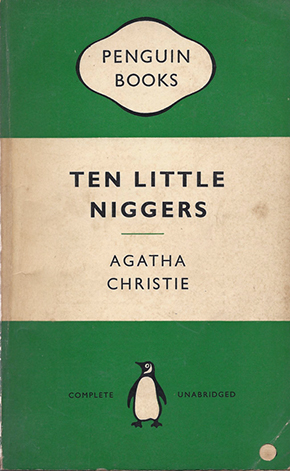
A far jollier event where absolutely nobody died even though many crime writers were present, was the annual Christmas party at Heffers Bookshop in Cambridge (formerly St Ignatius College) which was this year themed as ‘Murder Under The Mistletoe’.

It was, as usual, a splendid opportunity for writers to mingle with readers (for many writers rarely get to meet real people) and sign copies of their books. Particularly busy, as one would expect, was the table which boasted the works of Kate Rhodes, L.C. Tyler and Nicola Upson but a significant talking point was about the promotional material for a book not published until February.

Working very much, I suspect, on her own initiative, Cambridge crime writer Alison Bruce has produced some very attractive postcards to promote her forthcoming book The Promise, the sixth policier to feature her series detective Gary Goodhew. Even more impressively, Alison has utilised her trade-mark ‘femme fatale’ image, which is very lifelike, on coasters – or what used to be called in my day ‘beer-mats’ – which is, if you think about it, an absolutely brilliant idea. As published writers know only too well, events held in bookshops which involve wine are fraught with danger. Does one put down one’s glass on a pile of books and risk spillage – and in that case should one choose books by a competitor, just in case? (Admittedly there are writers who never release their grip on a glass.) Having coasters dotted around solves a tricky diplomatic problem and will sure be adopted as a key element in any forthcoming Health & Safety (Crime Writer Parties) legislation.
I am amazed that nobody had thought of the idea before, and I speak as someone who was forced by cruel circumstance to be Director of Public Relations for the Brewers’ Society for a brief period (20 years) in a previous life. During my time as a Captain of Industry (as Sarah Caudwell used to call me, because I had a day-job) I came into contact with many a dedicated Tegestologist – the official word for a collector of beer-mats, from the Greek I believe. I am sure any a Tegestologist worth his salt (they are invariably male) would love to add one of the superb limited edition ‘Alison Bruce’ mats to their collections. I have certainly made sure I have.
I am looking forward not only to Alison’s new novel, but to appearing with her on the same stage (it’s more of a raised platform really) at this year’s Crimefest in Bristol in May.
.jpg)
Alison has – some might say foolishly – agreed to participate in a revival of that infamous crime-fiction based panel game I’m Sorry I Haven’t A Cluedo which did so little for so many promising careers when it was staged at crime conventions in Manchester, London and Harrogate in years gone by. Alison will be joining the Ladies team of Susan Moody and Laura Wilson, who probably ought to know better as they both know me of old. The opposing team of ‘Gentlemen’ comprises Thomas Mogford, Andrew Taylor and Ian Rankin, who really does know better as he was a team captain for the very first performance but realises that I still have the negatives…
Asking the questions will be myself and Mr Peter Guttridge and I’m Sorry I Haven’t A Cluedo will provide the grand finale to Crimefest. I know this because when the luxury hotel hosting the convention approached me they said they needed a cast-iron method of making sure guests vacated their rooms on the Sunday morning and they had heard that ISIHAC had a good track record in clearing large buildings quickly.
Vintage Corner
Mining the rich seam of ‘Golden Age’ detective fiction will no doubt continue in the coming year, generating hopefully less controversy and more reward than the current attempts at fracking. (There must be a decent analogy in there somewhere.)
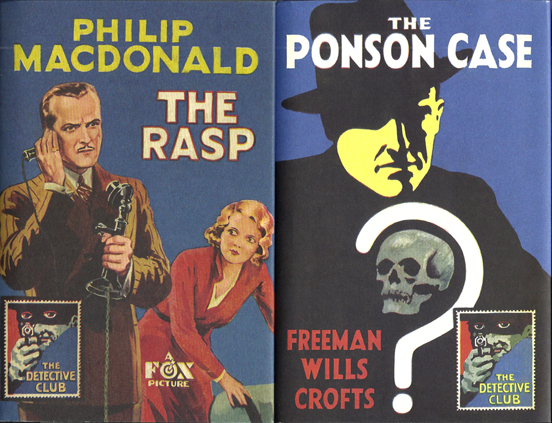
I was delighted to receive, as an early Christmas present, two splendid revivals from The Detective Club – which essentially became the famous Collins Crime Club - The Ponson Case (first published in 1921) by Freeman Wills Croft, who should need no introduction, and The Rasp (from 1924) by Philip MacDonald who, sadly, perhaps does.
Philip MacDonald was, in my not so humble opinion, one of the leading lights of the British ‘Golden Age’ though is often the forgotten man in an era dominated by outstanding female crime writers. Whether this was because he left England to work in Hollywood (with Hitchcock among others), was never a member of the elitist Detection Club or because he was damned with faint praise by Julian Symons as ‘a restless but careless experimenter’, I am not sure. Whatever the reason, he slipped unjustly below the radar far too early and a revival of interest in his work is long overdue.
The Rasp introduced his most famous detective, (Colonel) Anthony Gethryn, a former solider and secret service agent now working as a Fleet Street journalist, who was to star in some of MacDonald’s most famous crime novels, even – at a very venerable age – in The List of Adrian Messenger in 1959, a book I was honoured to write an Introduction to when it was republished by Black Dagger Crime in 1992.
Before that, in 1991, when Maxim Jakuboswki was editing 100 Great Detectives – where 100 crime writers picked their favourite fictional detectives by other writers – he discovered he had only 99 entries and asked me to make a second contribution under a pseudonym as I had already covered Charles Willeford’s Hoke Moseley.
When I discovered that no one had volunteered to write up Anthony Gethryn, it was, as the young people say, a ‘no-brainer’, but then Maxim told me no one had stepped up to cover Roger Sheringham, the detective created by my other Golden Age favourite Anthony Berkeley. It seemed perfectly natural then (or at least a good idea at the time) to write the piece as if Anthony Gethryn was being interviewed about Roger Sheringham (as they were roughly contemporaries) and to do it in the style of Twin Peaks, which was the cult television show everyone was raving about at the time.
That latter bit of self-indulgence may well have been over-egging the pudding, but it was my way of squeezing in two great detectives for the price of one.

I am also very pleased to see the old Collins Crime Club logo make a comeback on a reissue of Paul Temple and The Madison Case by Francis Durbridge. Paul Temple was a popular television detective, but a true legend as a radio detective back in the day when everyone listened to a wireless rather than an i-player (whatever that is).
I am no expert on Paul Temple’s career, or on his creator Francis Durbridge, but I know a man who is and so I instantly reached for my copy of Melvyn Barnes’ Cententary Appreciation and discovered the The Madison Case was a novelisation, published in 1988, of the radio serial first broadcast in 1949.
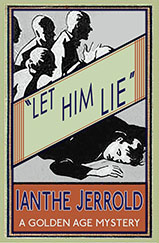 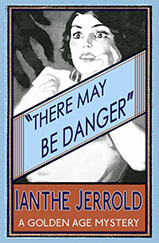
One has to admire the enthusiasm of Dean Street Press who, this month, announced two more resurrections from the ‘Golden Age’ in the form of Let Him Lie (from 1940) and There May Be Danger (1948) by Ianthe Jerrold. Less than a year ago, I would have said ‘Ianthe Jerrold (no, me neither)’ but thanks to Dean Street Press I no longer need to.
Eagerly Anticipated
The most anxiously awaited title of 2016, which I am sure was the subject of at least a five-way auction at the last Frankfurt Book Fair (and if not, why not?), must surely be Brit Noir: the Pocket Essential guide to British crime fiction, film and TV by none other than the acknowledged world expert (it says here), Barry Forshaw.
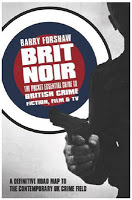
I am afraid I know nothing of this impending masterwork other than it is almost certainly going to be essential to, and will probably fit in the pocket of, every avid fan of British crime fiction. I foresee many a sleepless night between now and publication in March for several hundred British crime writers, myself included, wondering if they are going to be mentioned in it.
One crime writer probably not included will, I suspect, be ‘Linda Ridley’– the subject of the New Year’s Eve ‘Incredible Women’ segment of Radio 4’s Woman’s Hour. Written and performed by Rebecca and Jeremy Front, this was a rather scathing satire on some of nation’s best-loved (and most successful) crime writers, which included a guest appearance (as herself) by Val McDermid who claimed – whilst somehow keeping a straight face – that the violence in Linda Ridley’s books had made her physically sick.
To quote the programme, Linda Ridley ‘is not so much hard-boiled as face-down in the deep fat fryer’, which come to think of it sounds exactly the sort of writer who should be labelled ‘Brit Noir’.
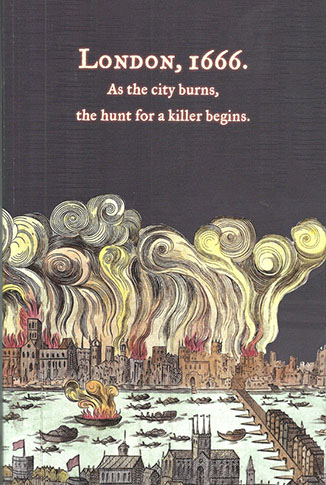
Personally, and I simply don’t care whether it qualifies as ‘Brit Noir’ or not, I am not only keenly anticipating Andrew Taylor’s new historical mystery The Ashes of London to be published by HarperCollins in April, but am actually already immersed in an advance proof copy.
If Taylor can conjure up an atmospheric historical mystery set in the 17th century (1666 and the Great Fire of London to be precise) as good as his recent excursions into the late 18th century (with The Scent of Death and The Silent Boy) then it will be another cracker. I have no doubts that he can and that he could well be in for a ground-breaking fourth CWA Historical Dagger.
|
|
Anticipating the Already Anticipated
When a publisher says that a forthcoming book is “the most anticipated title of the year”, they usually mean that it is the most anticipated by the accounts’ department. However, let me not be too cynical before the year has hardly started - there’ll be plenty of time for that later – and mention a few books which I am assured are eagerly anticipated, or already have been…
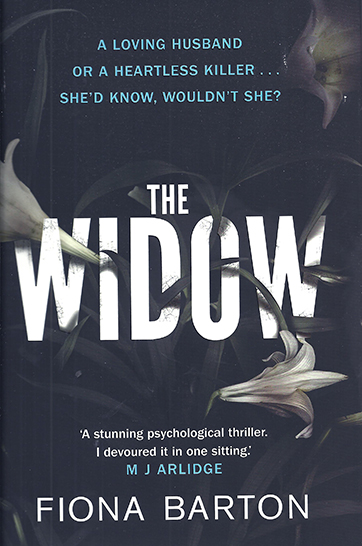
The Widow by Fiona Barton, for instance, is published by Bantam on the 14th of January yet has already been ‘anticipated’ by more than a dozen (rather mixed) reviews on Amazon dating from early November. The Widow is blurbed by several other authors as a ‘stunning/gripping/ultimate psychological thriller’ and C.L. Taylor describes it as ‘My book of the year so far’ which may, just may, been anticipating things too soon.
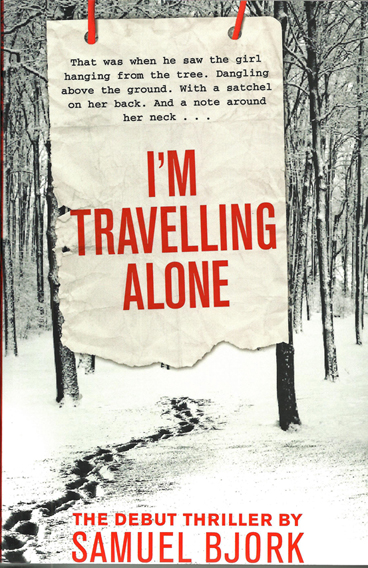
Also published by Bantam on New Year’s Day, and therefore technically the first crime novel of 2016, I’m Travelling Alone by Samuel Bjork, has already received over 50 reviews on Amazon, mostly dating back to March and April 2015. That may, of course, be due to the fact that the book, originally published in Norwegian in 2013, has already been a bestseller in Norway, Sweden, Holland, Germany, Spain and Italy (though not, oddly, Denmark).
It is well-known that I act immediately upon any and all recommendations made by Professor Barry Forshaw when it comes to Scandinavian crime fiction – and why he was overlooked yet again for a Polar Star medal in the King of Sweden’s New Year’s Honours is a mystery. However, I am intrigued to find Barry changing course somewhat as he recommends – for the first time as far as I know – a Japanese crime novel.
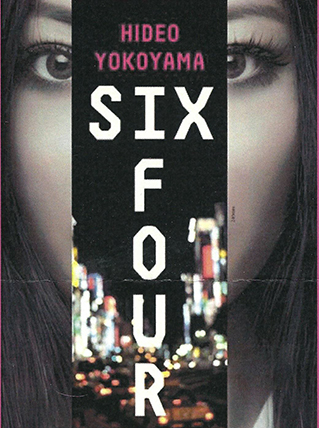
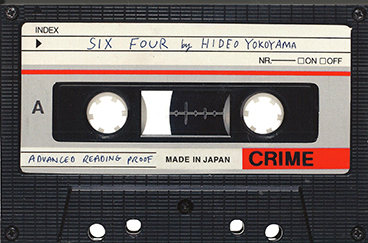
‘Crime fiction aficionados constantly search for the next big thing,’ blurbs Barry, ‘and this remarkable epic may just fit the bill. It is like nothing you have ever read in the genre, told in a narrative voice that is truly unique.’ Praise indeed for Six Four, a 635-page blockbuster by Hideo Yokoyama which is to be published by Quercus in March. I will certainly investigate Six Four, partly on Professor Forshaw’s recommendation (and that of David Peace, who knows his Japan and his fiction) and partly because I was so impressed with the proof copy I have been sent, designed as a cassette tape, though only I will probably remember such things. A further, though minor, incentive is the fact that no-one on Amazon has reviewed it yet.
Anticipation Rewarded
There have been some famous excuses given by publishers to authors concerning delays, cheques missing in the post, review copies not going out and so forth, but ‘delayed due to Monsoon’ must rank among the more collectible. The rains having abated somewhat, Ostara Crime is delighted to finally announce the publication of three Janet Neel titles from her popular series featuring policeman John McLeish and his lover (then wife) Francesca Wilson.
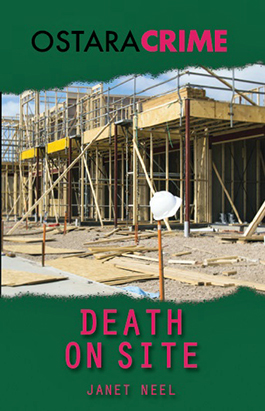 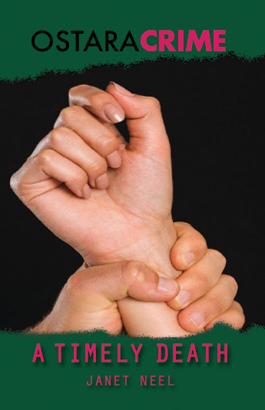 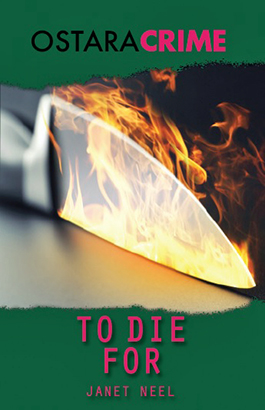
Death on Site, first published in 1989, was Janet Neel’s follow-up to her John Creasey Award-winning debut Death’s Bright Angel and cemented her reputation as a crime writer who could juggle three-dimensional characters, original plots and – quite unique at the time – an understanding of the workings, sometimes very murky workings, of the business world. The other Ostara Crime reissues are A Timely Death (from 1996), with its underlying theme of domestic violence against women, and To Die For (1998), set in a very fashionable, but strangely under-performing, Covent Garden restaurant. It is worth remembering that during her impressive business and financial career, Janet Neel (now Baroness Cohen of Pimlico) founded and financed two successful London restaurants, which no doubt helped her create the ideal recipe for a satisfying murder mystery.
A Death Before Dying
I was sad to hear of the death of Peter Dickinson in December on what I think was his 88th birthday. The author of over fifty novels, Dickinson will be best remembered as the author of many award-winning children’s books, but he also holds a special place in the history of British crime writing, being the first person to win the Crime Writers’ Association’s Gold Dagger two years’ running, for Skin Deep in 1968 and A Pride of Heroes in 1969. I think that achievement has been equalled only by the late Ruth Rendell, who won Gold in 1986 as Ruth Rendell and again in 1987, writing as Barbara Vine.
At exactly the time he was winning double Gold for his crime fiction, Dickinson was embarking on his career as a children’s author and although that was the route he mainly followed, he did continue to produce some excellent crime novels (often quirky, never playing safe) including one of my favourites: Some Deaths Before Dying in 2000, which I felt sure would have bagged him a third Gold Dagger.
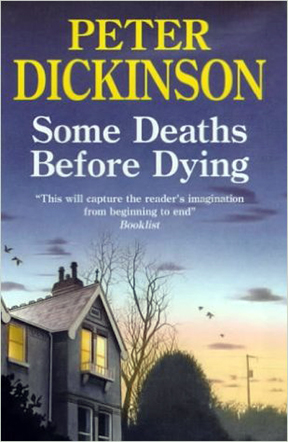
It was not to be and I believe the book was not even short-listed, though I somehow think Mr Dickinson would not have been too upset. When I was first allowed to attend CWA meetings as a young and innocent debutant in the last century, I once asked whether he ever attended (as I was keen to meet my literary heroes) and was told that would be unlikely as there had been ‘much bad feeling among the members’ at someone winning their most prestigious prize two years’ running. I remember thinking at the time that it seemed very odd behaviour to shun a fellow writer simply for being talented and successful; but, as I say, I was very young and very innocent in those days.
Sadly, 2015 ended with a double sting in that I have to report the death of George Harding.
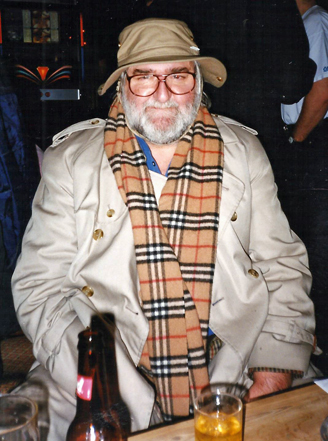
A book dealer who specialised in supplying public libraries and a contributor to the trade newspaper Publishing News, ‘Big George’ as he was fondly known was a larger than life character (for a brief period in his youth he was a professional wrestler) who always said his love of reading – and especially crime fiction – had come from long sea voyages when in the Merchant Navy
He was an enthusiastic promoter of crime fiction, active in getting crime novels into libraries in both the UK and Ireland and a great supporter of the Crime Writers Association.
Family Tree
Readers of this column will know that I rarely mention my distinguished ancestry and have never sought to capitalise on the name and estates of the 12th century nobleman Roger de Rippelay (as the old church rolls spell it) of North Yorkshire. Ironically, Roger’s lands abutted on to the site of what became Ripley Castle near Harrogate but by the time the castle was built, the de Rippelay family had moved further north. On the advice of many lawyers I have tried my best, over the years, to convince my followers that I have no legal claim whatsoever to Ripley Castle, but people will believe what they want to believe.
I mention this purely because the activities of a more recent ancestor, Sir Michael de Ripley, and his role in the Restoration of King Charles II in 1660, after that tiresome Cromwellian interregnum, have recently been exposed in a work of ‘historical fiction’ by a distinguished member of the Crime Writers Association and the elite Detection Club.
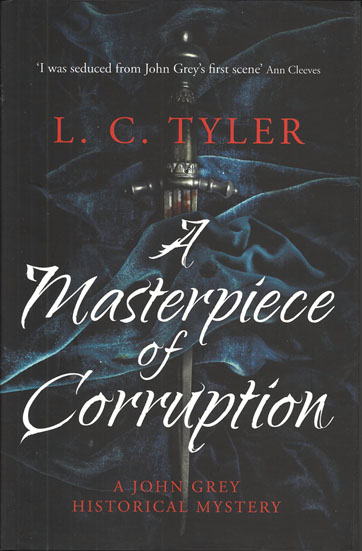
In A Masterpiece of Corruption (out now from Constable), crime writer L.C. Tyler, whom you would have thought could have done better until you remember he went to Oxford, tells the tale of a plot to assassinate Oliver Cromwell in 1657. One of the masterminds behind this plot, and a prominent member of the Royalist society known as The Sealed Knot, was of course Sir Michael de Ripley, who plays a leading role in the book. Despite the author’s insistence that the character of Sir Michael is “especially imaginary”, I know better and am determined to discover how the author has acquired family papers which I thought had been sealed for the customary 500 years. (Customary in Yorkshire, that is.) Needless to say, my legal team has been briefed.
New Year’s Resolution
My only Resolution for the New Year is to sample, at the first opportunity, what appears to be the ideal libation for anyone involved in the creation of crime fiction:
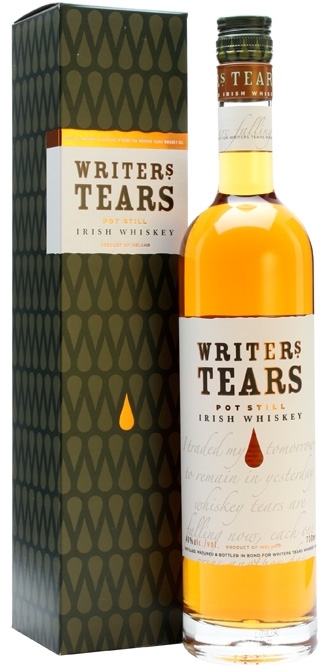
Happy New Reading,
The Ripster.
|